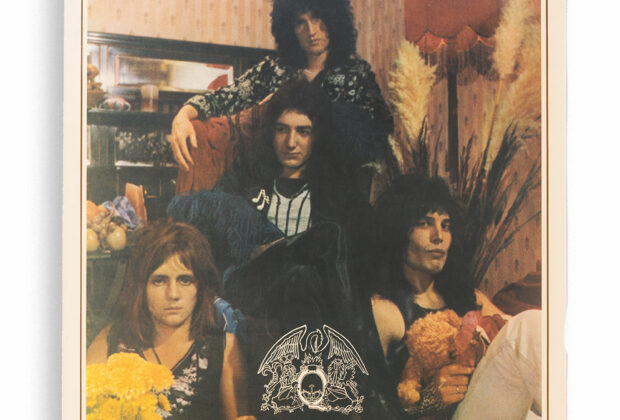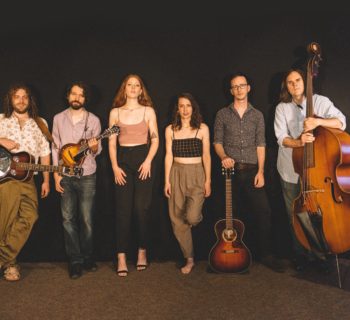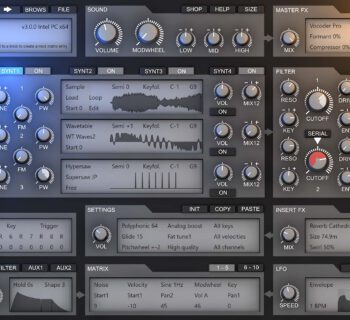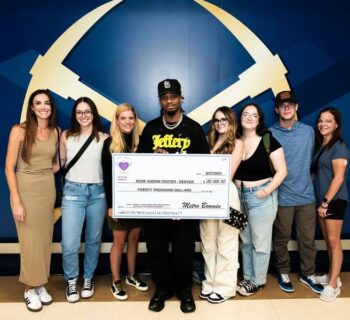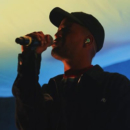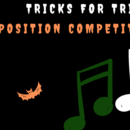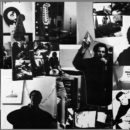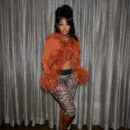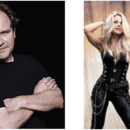Queen has announced the release of a brand new, limited edition immersive Dolby Atmos release of the album, set to be available on Audiophile Blu-ray on June 13. This release arrives in the U.S. from Sony Music. Universal Music Group is releasing it for the rest of the world.
“There are now a few nice adventurous Easter eggs in there, which those who know the album intimately will hopefully enjoy. This is not just a remaster, this is a brand new 2024 rebuild of the entire Queen debut album,” quoted Brian May when announcing the release of the band’s revisit of their eponymous debut album late last year, retitled Queen I for this new update. May further elaborated: “Every instrument has been revisited to produce the ‘live’ ambient sound we would have liked to use originally.”
With Brian May and Roger Taylor acting as executive producers, and overseen by Queen’s long-standing audio-production team of Justin Shirley-Smith, Joshua J Macrae, and Kris Fredriksson, this enhanced spatial surround sound format release breathes stunning new life into the band’s epic and unique multi-layered sound.
Says Justin Shirley-Smith, “It always feels like Queen’s music was designed for immersive formats. It’s dramatic and powerful and has a lot of dynamics. The original album was recorded more than 50 years ago, but it was so ambitious musically, rhythmically, and lyrically. It’s beyond belief, really, and it’s such a joy for us to work on.”
To mix Queen I in Dolby Atmos, the team made stems from the 2024 stereo mix, allowing them to process and pan each musical part individually, bringing new depth and dimensions to an album already bursting with invention.
Shirley-Smith explains, “It’s always fun working in Atmos because we are confident that the mix is already good from the stereo, and this expanded sound field gives us an opportunity to feature the backing track without masking some of the intricate multi-layered elements that Queen are famous for."
“We finished the mix with Lewis Jones at Abbey Road, where they have a great mix studio equipped with all the speakers required,” he continues. “Lewis has worked on a great many significant immersive projects and is a crucial part of the Atmos mix team.”
Originally released in 1973 and featuring the iconic line-up of Freddie Mercury, Brian May, Roger Taylor, and John Deacon, Queen’s self-titled debut album marked the start of the band’s stellar journey, showcasing a band whose staggering musical talents and breadth of ambition remain unmatched.
Songs such as “Keep Yourself Alive,” “Liar,” “The Night Comes Down,” “Great King Rat,” “My Fairy King,” and “Modern Times Rock ’n’ Roll” are the work of a band able to deliver everything from surging hard rock anthems and delicate ballads to ornate, visionary mini-symphonies.
“There are so many different styles on the album,” says Justin Shirley-Smith of Queen I. “For instance, the song My Fairy King is a precursor to what came later with Bohemian Rhapsody. It’s so adventurous, and this new mix brings out things that you won’t have heard before. Like everything on the album, it sounds fantastic.”
Queen’s landmark debut album was reissued to widespread acclaim in 2024 as a remixed, remastered, and expanded 6CD+1PL box set edition. Retitled Queen I, it restored the ‘lost’ track “Mad The Swine” to the final track listing and saw the band return to the U.K. album chart, providing them with their highest chart placing since Live Around The World, recorded with current singer Adam Lambert, reached No.1 in 2020.
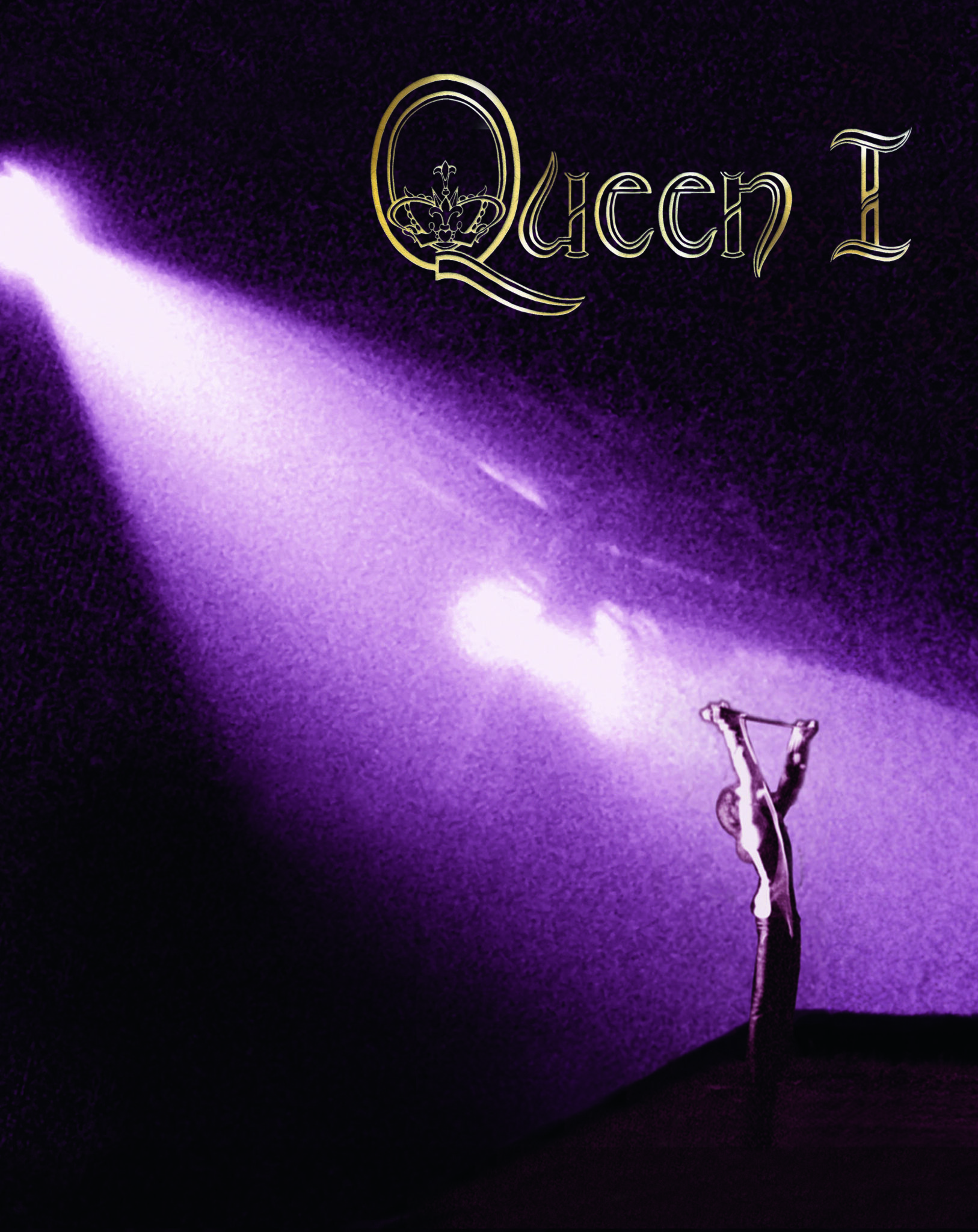
More than 50 years after Queen’s debut was originally released, comes this immersive Dolby Atmos mix.
Says Brian May, “I'm particularly excited about this new Dolby Atmos version of what we now call QUEEN 1. When the boys were converting the stereo rebuild into a surround experience, I was unable to be there, due to a health hiccup. So I was very happy to have the opportunity to go back in with them recently and add my own contribution to this multichannel mix... So, the Blu-ray version is an update from the version that has currently been available to stream. Nobody has ever heard our first album quite like this!!!”
“At last,” concludes Roger Taylor, “we get our first album to sound as we imagined it should sound….phew!”
Actor Rami Malek was the 2019 Academy Award-winning recipient in the Best Leading Actor category for his portrayal of Freddie Mercury in the Queen biopic Bohemian Rhapsody which has generated a global gross over $800 million.
Century Fox Home Entertainment issued a DVD, Blu-ray and 4K Ultra HD disc of Bohemian Rhapsody and is available digitally. It includes the full, uncut, never-before-seen Queen Live Aid recreation coupled with the original footage. The DVD, Blu-ray and digital edition will also incorporate behind-the-scenes segments with the film’s cast along with Brian May and Roger Taylor discussing the making of the film.
I went to see Bohemian Rhapsody. Although there were some chronological errors and revisionist history in the motion picture, I was very impressed by Malek’s star-turn as Freddie Mercury. I didn’t realize how many people have flocked to see Bohemian Rhapsody, and possess Queen-sanctioned video/DVD products, and constantly devour their audio catalog
My frame game public and online profile has been more visible after being filmed along with Queen co-founders guitarist Brian May and drummer Roger Taylor in their 2012 Queen at 40 documentary, directed by Matt O’Casey for BBC Television and issued and expanded as Queen: Days Of Our Lives The Definitive Documentary of the World’s Greatest Rock Band as a 2014 DVD and Blu-Ray via Eagle Vision regularly broadcast on cable TV outlets.
I was a celluloid pundit, reinforcing Queen’s legacy and became part of their visual and print/online documentation, a ramification of product participation.
I was subsequently quoted describing Queen on www.brianmay.com “As American journalist Harvey Kubernik put it, ‘it wasn’t rock ‘n’ roll, it was Broadway.’”
As Freddie himself once said, “A concert is not a live rendition of our album. It’s a theatrical event.”
Queen’s 1976 stage repertoire included an encore of Cy Coleman and Dorothy Fields’ song “Big Spender,” initially done on the boards by Shirley MacLaine in the Broadway musical Sweet Charity. Mercury first heard Shirley Bassey’s 1967 version of the tune on BBC Radio and then by Liza Minnelli. “Big Spender” is on Queen Live at Wembley ’86.
I saw Queen perform three times during the seventies and also interviewed Freddie Mercury twice—once in Beverly Hills for the now defunct Melody Maker and in London during 1975 and ‘76.
Our first conversation was at the Beverly Hilton Hotel. It was a Special Melody Maker report Killer Queen Slay America!
Mercury regally waltzed into the room, stuck out his hands, and greeted me and fellow journalist Justin Pierce with “Hello darlings. What do you think of my black fingernail polish?”
I quickly replied to him, “Freddie, I grew up in Hollywood. I know what kind of paint color real stars wear. So while in L.A. why don’t you go over to Ball Beauty on Fairfax Ave? My cousin Shelia Kaye and Cher get their makeup supplies at that shop. It’s near Norty’s Music Center. Ask one of the women at your Elektra Records label office on La Cienega Blvd. to drive you there.”
Mercury poured a glass of champagne and requested “to please put the tape machine on.” Freddie was a yenta and thoroughly enjoyed trumpeting Queen and discussing the machinations of their mid-seventies career.
We must have spent the first ten minutes just talking about Liza Minelli and Judy Garland.
I saw Judy sing in 1963 at her CBS-TV Judy Garland Show taping in Television City in a memorable duet with Barbra Streisand. In 1975, I sat next to Liza at a Rolling Stones 1975 Fabulous Forum concert. Freddie had seen Minelli at the London Palladium in the very early seventies.
Mercury was stunned. “If you come to London do call my publicist Tony Brainsby. We must do this again.” And we did, but this time he was wearing green nail polish.
Freddie had an air of confidence and mega-stardom destiny about him. The boy had a keen sense of the pop music process and about being a star on and off the stage. To tell you the truth, I was much more interested in talking to Freddie about the time when he, Taylor, and May cut versions of “I Can Hear Music” b/w “Goin’ Back” under the pseudonym Larry Lurex than I was about discussing his sexuality.
That session was around the time of the recording of Queen’s debut album (for legal reasons, they couldn’t call it a “Queen” single).
I also had a delightful chat with Brian May after a Queen show at a party Elektra Records tossed in Hollywood, where Brian informed me he saw the Jimi Hendrix Experience a few times.
May recalled that in 1967 he was on the entertainment committee at Imperial College in London which booked the trio for a cheap rate. Before Queen and Smile, Brian was in a band in 1984 that opened a show for Hendrix or played at a venue with him.
In my last conversation with the visionary A&R man, and former record label executive at UNI/MCA and later 20th Century Records, Russ Regan, he lamented one failure in the music business was not acquiring Queen in 1973 for a North American deal, losing out in a bidding war to Jac Holzman at Elektra.
Regan gave The Beach Boys their name and at UNI inked Elton John to the company and Barry White to 20th Century. “I loved Queen’s songwriting, harmonies, and the sound I heard on the tape sent to me.”
So, I think it’s a perfect time, after 50 years, to write about Queen again and Freddie Mercury, utilizing my Stateside 1975 interview with him, reminding the world about this talented, charismatic performer, and truly charming character.
Harvey Kubernik Freddie Mercury 1975 Interview
It was mid-afternoon in Beverly Hills as Freddie Mercury peered over the spacious swimming pool of the Hilton Hotel and reflected on Queen’s latest tour of the States.
“The tour has been going just great. The only drawback has been the problems with my voice, which I’ve been overtaxing. But since I’ve been taking care of it and resting more, it’s been fine. The problem is that when you do a tour, you try to schedule the concerts as close as possible.
“Therefore, it’s like a constant workout. However, at this moment it’s raring to go and at the conclusion of this tour, we’re going to take a rest in Hawaii, which we really deserve. From there it’ll be on to Japan and Australia.”
The success story of Queen is remarkable when one considers the time in which they’ve become one of the world’s most popular bands. In Japan, they were recently voted one of the top three bands in the world, and that’s without even doing one date in the Orient.
What does Freddie see as being the key to their phenomenal following? “I can’t pinpoint it, but there’s something about our music that’s different and unlike anybody else’s.
“I believe that’s our major strong point. But there’s other ingredients. Besides the fact that our timing has helped, there is the fact that we take risks. We’re not one of those groups that go through every stage, for we skipped a few hurdles, and we’re willing to take the chances that brought us to our level of acceptance.
“This American tour is a perfect example. To undertake this kind of massive tour is not unheard of, but it is a risk. People were constantly telling us about the American economy and how the biggest groups are having trouble filling venues.
“And for us to come on as strong as we are, headlining after only half a previous tour, shows how confident we are, or what you can put across unless you were a headliner.
“And now we’ve proved we can do it. Here we are, the first time in L.A. and we’ve sold out two shows, and it’s simply an amazing feeling.”
That feeling is bound to be even greater on subsequent tours for Queen who are only now breaking into the American record charts with their single recording of “Killer Queen” from Sheer Heart Attack.
The gentleness and buoyancy of the tune is in marked contrast to the high level of energy that characterizes their first two albums.
It is only on the third album that the diversity really became apparent. However, Mercury really doesn’t look at it as a great change: “The thing I hate is trying to pinpoint everything for everybody.
“People always ask questions like, ‘Why did you write such and such a lyric and what does it mean? That’s now what it’s all about. The one thing the British press has been trying to do for years is to pinpoint and catergorise. It really annoys us.
“We came out with ‘Keep Yourself Alive’ as a single, which is raunchy, and then we decided on ‘Killer Queen’ for a later release. The first thing they do is go up to you and ask ‘What are you up to?’ This is our music and it’s up to the individual to interpret it. It’s not up to us to come out with a product and label it.
“It would be boring if everything was laid out and everybody knew what it was all about all the time. I like people to make up their interpretation.
“They also want to categorize my stage image. I remember back in an interview where I said, ‘I play on the bi-sexual thing.’ Of course I play on it. It’s simply a matter of wherever my mood takes me. If people want to know and ask me if I’m gay, I tell them it’s up to themselves to find out. I’m just being my flamboyant self and having a good time,” he smiled.
Even though Mercury prefers not to try and analyze Queen’s music, he discussed their cumulative work in a logical manner: The first LP was very raw and full of freshness.
“It was simply a reflection of what we’d been doing for so long and we just wanted to get it out of our system. On the second album we found out that even though we had a formula we didn’t necessarily have to keep it.
“Therefore, we dabbled at other things. Sheer Heart Attack was something different again. We wanted to make it interesting for ourselves as well as the listener. Hopefully, we succeeded on both counts. When we’re on stage we try to do the same thing.
“We’re perfectionists. Although all of us write, it doesn’t necessarily mean that every song composed will appear on an album.
“Having all the members write adds to our versatility, and that’s another strong point. On the last album we wanted to create a certain feel, and did. However, there were so many ideas and things that we wanted to do and have yet to carry out.
“You simply can’t do everything on one album. Lots of groups eventually burn themselves out due to lack of new ideas. But at this point, there’s no way we’re going to burn out. In fact, presently we’re stronger than ever.
“We do rock ‘n’ roll, and our presentation is just a way of putting across the music. We view albums and concerts as two spheres of work. There’s a different level in the studio as compared to when you’re on stage. But when we’re before an audience we let loose,” Freddie underscored.
Mercury was at the end of the US tour. It was interesting to know how he felt the English music market differs from the American.
“Even though singles may have been more important at one time in Britain, I feel that the stress on the singles and the albums is becoming pretty even. If you play too much on singles you can quite easily become a singles group.
“At that point it’s almost impossible to revert back to albums. I feel we’re in a fortunate position for we’ve only released four singles, including our new one. Therefore, we’ve achieved a balance. I think the same thing is true in America, though we’ve had to rely on response to our albums to carry us through. It wasn’t really till ‘Killer Queen’ that we received mass exposure on a commercial level.
“Back home, you have to be very careful of what you say or do because you’re in a position of immense responsibility. In fact, it can sometimes get ridiculous.
“We have this black-and-white theme that we carry out in England and it’s very strong. It has even got to the point where the audiences dress and look like me to a tee. They’re very faithful and it’s beautiful. On this tour, in Dallas, there was even a fan dressed with black makeup on one side of his face and white on the other, and it was marvelous.”
As for his own musical tastes, Mercury says: “I listen to all kinds of music from Hendrix to Liza Minelli, all the way back to Mae West. I also enjoy Flo & Eddie when I hear them on the radio. They’re simply a riot.
“I also enjoy Joni Mitchell tremendously, and am constantly awed by her vocal phrasing as well as the amazing things she writes. She’s simply beautiful.”
Besides devoting the last few years to Queen, band members took time to record a single “I Can Hear Music” and “Goin’ Back” pressed up under the name Larry Lurex.
In the early '70s, Robin Geoffrey Cable was a house engineer at Trident Studios in London, owned by Queen's initial manager Norman Sheffield. At one point, Cable was at work on his own musical project, but he enlisted Freddie Mercury, Brian May and Roger Taylor to add some parts. A pseudonym was devised for Mercury. "Robin liked the idea of spoofing Gary Glitter and the Glam Rock movement, so he came up with 'Larry Lurex!'" May recalled following Cable's passing in 2020. "So in a sense our first ever release on vinyl was under the name 'Larry Lurex.'"
I’d never associate Queen with Brill Building songwriters Jeff Barry, Ellie Greenwich, Phil Spector, Gerry Goffin, and Carole King or expect cover versions of The Ronettes and The Byrds. I asked Freddie, how did this come about?
“It was simply a by-product. We’d already completed our first album [at Trident Studios] and a producer friend [Robin Cable] told us about this record he wanted to put out just for fun.
“He said he wanted us to do it, but we told him he couldn’t use our name. Actually there were quite a number of studio musicians on it besides ourselves. It was in the days of Gary Glitter and Alvin Stardust.
“We never took it quite seriously since it didn’t have anything to do with Queen. It was only when we achieved popularity and people started figuring out that it was us that anybody was interested. It was just something rock stars dabble in once in a while and I was quite pleased with the outcome.”
(Harvey Kubernik is the author of 20 books, including 2009’s Canyon Of Dreams: The Magic And The Music Of Laurel Canyon, 2014’s Turn Up The Radio! Rock, Pop and Roll In Los Angeles 1956-1972, 2015's Every Body Knows: Leonard Cohen, 2016's Heart of Gold Neil Young and 2017's 1967: A Complete Rock Music History of the Summer of Love. Sterling/Barnes and Noble in 2018 published Harvey and Kenneth Kubernik’s The Story Of The Band: From Big Pink To The Last Waltz. In 2021 the duo wrote Jimi Hendrix: Voodoo Child for Sterling/Barnes and Noble. Otherworld Cottage Industries in 2020 published Harvey’s Docs That Rock, Music That Matters. His Screen Gems:(Pop Music Documentaries and Rock ‘n’ Roll TV Scenes) is scheduled for a 2025 publication date. Kubernik’s 1995 interview, Berry Gordy: A Conversation With Mr. Motown is in The Pop, Rock & Soul Reader edited by David Brackett was published in 2019 by Oxford University Press. Brackett is a Professor of Musicology in the Schulich School of Music at McGill University in Canada. Harvey joined a lineup which includes LeRoi Jones, Johnny Otis, Ellen Willis, Nelson George, Nat Hentoff, Jim Delehant, David Ritz, Nelson George, Camille Paglia, Ben Fong-Torres, Jerry Wexler, Jim Delehant, Ralph J. Gleason, Greil Marcus, Cameron Crowe, Richard Cromelin, and Paul Nelson. The New York City Department of Education will be publishing for fall 2025 the social studies textbook Hidden Voices: Jewish Americans in United States History. Kubernik’s 1976 profile/interview with concert promoter Bill Graham on the Best Classic Bands website Bill Graham Interview on the Rock ’n’ Roll Revolution, 1976, Best Classic Bands, is included. Harvey wrote the liner notes to CD re-releases of Carole King’s Tapestry, The Essential Carole King, Allen Ginsberg’s Kaddish, Elvis Presley The ’68 Comeback Special, The Ramones’ End of the Century and Big Brother & the Holding Company Captured Live at The Monterey International Pop Festival. During 2006 Kubernik spoke at the special hearings by The Library of Congress in Hollywood, California, discussing archiving practices and audiotape preservation. In 2017 he lectured at the Rock and Roll Hall of Fame in Cleveland, Ohio, in their Distinguished Speakers Series. Harvey spoke at The Grammy Museum in Los Angeles in 2023 discussing the Martin Scorsese-directed The Last Waltz music documentary.”
Photo and album visuals courtesy of Sony Music

